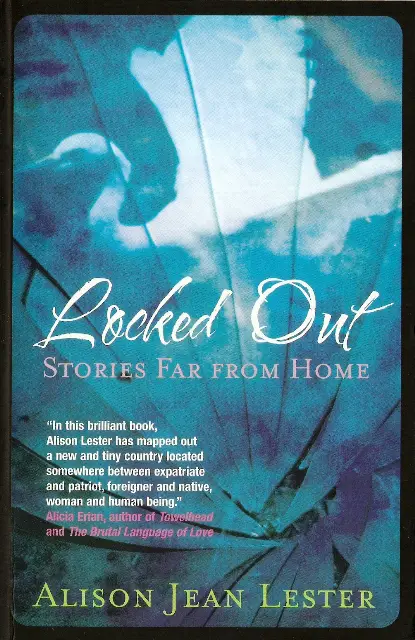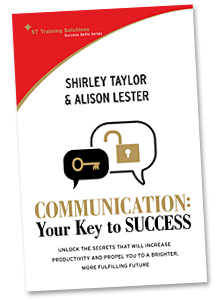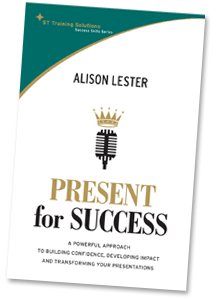Alison Jean Lester is a Singapore-based American writer and communication coach who was born in 1966 in Los Angeles. She is the author of one collection of short stories, Locked Out – Stories Far From Home (Monsoon Books, 2006), and two books of self-help published in 2009 by Marshall Cavendish. In this interview, Alison talks about her books, writing, expat life and communication.
Mihnea Voicu Simandan: In 2006, you made your debut with a collection of short stories inspired by your life abroad. How long did it take you to complete the book?
Alison Jean Lester: I didn’t set out to write a book. I was just writing stories as they came to me. The first seven or so stories came to me between 1999 and 2001, and then there was a hiatus due to upheaval in my life. I started writing stories again in 2004 or so, I think. It wasn’t until early 2006, when the title story was published in an American literary journal, ecotone, that I considered the possibility of assembling a collection. Once Phil Tatham of Monsoon Books expressed an interest in publishing them as a book, I had to get down to work on developing the rest of the stories I had floating in my head.
MVS: When did you write the stories?
AJL: I used to ride my bike into the park near my apartment. There was a coffee shop there. If found it really easy to think there, and when I couldn’t think, I’d ride my bike, and then I could think again. This was at the beginning. Later – two apartments later (upheaval, remember) – I wrote on my balcony, in the mornings, when I was free.
MVS: How was the book received?
AJL: It was very interesting to me how it was received. There were three main reactions in Singapore. First, expat readers who felt it was a book that represented “us”. Second, Singaporean readers, who felt it was a window on the expat world (one interviewer said it challenged her stereotypes of expat women – I was very happy about that). Third (my favorite), Singaporean and other readers who felt they identified with the feelings and situations in the book as applying to us all. As you noted in your review, it’s people who feel displaced speaking in the book. It’s people who feel like they are out of their element. Anyone can feel like that; not just expats. Sayuri, in Being Japanese, isn’t an expat in Japan, but she still feels foreign.
MVS: Is it still available in bookstores?
AJL: It is available in Borders in Singapore, at least, and is also being distributed in Barnes & Noble in the United States. Since the end of last year, it has also been distributed by Macmillan in Australia and New Zealand.
MVS: I bought my copy at a library sale in Bangkok…
AJL: I’m sorry they wanted to get rid of it, but I’m glad that it led you to me!
MVS: Locked Out is written from the point of view of a woman, with all major characters being either expatriate or local women. Do you think it’s easier for men to accommodate to a new country?
AJL: There is one story in the voice of a 14-year-old American boy, but he’s being affected by the presence and character of a German woman in his neighborhood, so perhaps that story is partly her point of view as well. But the predominant point of view is indeed women.
I don’t think that men have a fundamental advantage over women in adjusting to a new place. In Tiptoe, I hope you can tell that Amy’s husband also feels awkward and nervous about his position. But he goes off to work each day and she is left trying to find a place for herself, somehow, somewhere. This is very often the case for the “trailing spouse”. The one who arrives in the new country with a job waiting for them has a ready-made community. They know where to plug themselves in. The trailing spouse is unplugged without an obvious outlet.
MVS: You have also published two non-fiction books: Present for Success: A powerful approach to building confidence, developing impact and transforming your presentations and Communication: Your Key to Success (with Shirley Taylor). As the titles suggest, these two books of self-help cater to a totally different kind of reader…
 AJL: Yes! I run a communication skills training and coaching business, AJ Lester Communication Training. I’ve been working as a corporate trainer for over a decade now, and when the opportunity came up to write these books, it was great to be able to channel all my accumulated experience and knowledge and impressions into these books. They’re part of a really good series that Shirley Taylor is editing: The ST Success Skills Series.
AJL: Yes! I run a communication skills training and coaching business, AJ Lester Communication Training. I’ve been working as a corporate trainer for over a decade now, and when the opportunity came up to write these books, it was great to be able to channel all my accumulated experience and knowledge and impressions into these books. They’re part of a really good series that Shirley Taylor is editing: The ST Success Skills Series.
MVS: What is your writing routine?
AJL: Hahahahahaha! I wish I had one. In fact, just last week I wrote some writing days into my calendar, because I’m too busy with work at the moment (not to mention a lovely new husband – of one month! – two interesting teenagers and a dog). I’ve been working on a novel for several years now. That doesn’t mean it’s long! It means I hardly get time. During two summers I took a week to myself in the south of France, to let my thoughts travel where they needed to and not be distracted. That worked wonderfully, but it’s a huge luxury. When I came back, I wrote on Monday mornings. But that was during the financial crisis. The economy has picked up since then, and I’m busy again. So… I’ve written writing days into the diary, and I’ve simply got to protect them.
MVS: When will you publish another book of fiction?
AJL: As soon as humanly possible.
MVS: Do you employ the same techniques when writing short stories and novels.
AJL: Excellent question. In a novel, you have to spread a number of themes out over a longer stretch of narrative, and you have the opportunity for several points of view. Lots of great novels speak in the voices of two people or more, but there’s not enough space for that in a short story. In a short story, it seems best to take one theme, or one conflict, and have the bulk of the story’s language refer to it. In a novel, it’s more like getting a puzzle put together.
I really like short stories because they demand clarity of purpose from the beginning. Maybe that’s why the novel I’m working on is turning out to be made up of chapters that could also possibly stand alone. But the one I have in mind for after that will be different. I’m determined to find a way to write that one in another way.
MVS: What advice would you give to aspiring writers?
AJL: Practice. Practice practice practice. Don’t expect the first thing you write, or the first three things you write, to please you. I wrote two novels before I started writing the short stories in the collection.
Think about it this way: When you turn on a tap that hasn’t been used, brown water can come out. You can’t turn the tap off and expect the water to be clean and clear when you turn it on again. You have to let everything that’s in the pipes out. Maybe the clean water is what you want. Or maybe the brown water has something interesting in it. But don’t be afraid of the color. Keep the tap open.
Also, don’t write in a vacuum. You won’t learn anything. Show your writing to people you trust and admire, and listen carefully to what they say. Sometimes it hurts. Let it sink in slowly. Don’t let them make your decisions for you, though. Listen, then decide what to do.
 MVS: Apart from being a writer, you are also a communication coach, helping people express themselves effectively. When did the writer become a public speaker / coach?
MVS: Apart from being a writer, you are also a communication coach, helping people express themselves effectively. When did the writer become a public speaker / coach?
AJL: There was a step in between. I am also a comedian. I used to perform stand-up comedy, when I lived in Tokyo. Then I started practicing and performing improvised comedy. Learning to improvise has had a profound effect on my life, and I started thinking about how to apply the powerful rules of ‘improv’ – listen, accept, support, and offer – to business and personal communication. When I arrived in Singapore from Tokyo, I immediately started using ‘improv’ to help people feel more comfortable thinking on their feet and engaging their colleagues.
MVS: You have lived in quite a few Asian countries and now reside in Singapore. What’s so special about this city state?
AJL: I love tropical weather! I love the greenery and the flowers and the birds. I love swimming. But other places are beautiful as well. The main reason I have stayed here so long is my children. I’m divorced, and their father lives here too. Singapore is a great place for a divided family, because the kids can get around the city safely on their own, back and forth between the parents’ houses. Buses and taxis are very safe and not too expensive. Also, they are in a truly marvelous international school. I don’t know that we could find them such a stimulating but also secure environment anywhere else.
MVS: Thank you for your time. I’m looking forward to reading your next book.
AJL: So am I, Mihnea. I will honor my writing days, and I will let you know what happens.
Mihnea Voicu Simandan
Bangkok, Thailand
August 18, 2010

